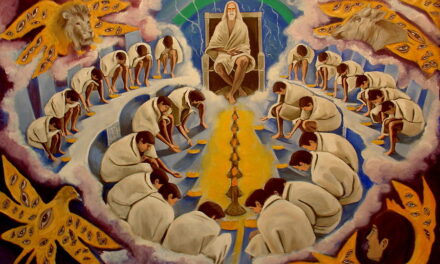I’ve written a lot about Ignatian spirituality, but have not written a post about the overall themes one can find in this way of approaching one’s spiritual life. Ignatian spirituality is based on the life and experience of St. Ignatius of Loyola, a 16th century Basque saint and soldier whose profound conversion came after a cannonball shattered his knee while in battle. 2021 marks the 500th anniversary of this moment. As Ignatius recovered in bed and read about the life of Christ and the saints, he was moved to transform his life from one of vanity and pride to one of service and love. John O’Malley, SJ and Tim O’Brien, SJ recently wrote an article about how Ignatian spirituality was “constructed” over time as Jesuits gained access to the writings and records of Ignatius and other early Jesuits. While Ignatius himself may not recognise some of the “Ignatian” terms we use today, he would, I think, recognise the spirit behind what we call Ignatian spirituality.
Much of the Ignatian spiritual tradition comes from Ignatius’ Spiritual Exercises, and some from the Jesuit “way of proceeding”. It is a spirituality but also a worldview and a God-view. Here are five primary contributions of Ignatian spirituality and some sub-contributions from each of them, encompassing a large part of what this spiritual tradition is about.
1 Principle & Foundation
Let’s begin with Ignatius’ Principle and Foundation (P&F), found at the beginning of the Spiritual Exercises. The P&F lays out our purpose in God, and really the purpose for everything. I’ve unpacked a contemporary translation of this, but I’d like to share the literal translation so we can get a sense of Ignatius’ mind.
Man is created to praise, reverence, and serve God our Lord, and by this means to save his soul.
And the other things on the face of the earth are created for man and that they may help him in prosecuting the end for which he is created.
From this it follows that man is to use them as much as they help him on to his end, and ought to rid himself of them so far as they hinder him as to it.
For this it is necessary to make ourselves indifferent to all created things in all that is allowed to the choice of our free will and is not prohibited to it; so that, on our part, we want not health rather than sickness, riches rather than poverty, honor rather than dishonor, long rather than short life, and so in all the rest; desiring and choosing only what is most conducive for us to the end for which we are created.
Let’s examine the three points the the P&F lays out: participation in God’s Project, the use of created things, and indifference or detachment.

Participation in God’s Project
Man is created to praise, reverence, and serve God our Lord, and by this means to save his soul.
We are called to participate in God’s Project for the world. Louis Savary paraphrases our purpose as “Bringing all creation together into one magnificent conscious loving union.” In different words, Ignatius says we are to “praise, reverence, and serve God” and save our soul. At first this can seem like a relationship of servitude toward God, but really, these three actions are responses to a love-relationship. And what is salvation other than union with God and God’s creation?
- Praise is a love-response borne out of gratitude. We glorify God in order to share and participate in God’s ongoing creation (love is always generative). Praise is a natural response to gratitude. It’s the tremendous gratitude expressed as a response to a gift of love.
- Reverence is another word for awe and wonder. It’s that dropping to your knees because you’re in the presence of Love itself – not in an I’m-not-worthy kind of way, but because you realise you’re standing before love incarnate.
- Service is not the same as servitude. Rather, it’s a call to collaborate, work with, and serve God by sharing the divine love with others. It’s a way we share and participate in God’s ongoing creation. It’s again a response. We serve God when we love neighbour, when we use our gifts and talents, and when we make choices that align with God’s Project. Christian service is a response to divine love by sharing divine love.
Read more about these three terms in this post. The Ignatian term for our participation in God’s project or dream for the world is co-labouring. We work side by side with God in the building of the kingdom. We are valued for our contribution. A collaborative relationship is not one of servitude.
The Use of Created Things
And the other things on the face of the earth are created for man and that they may help him in prosecuting the end for which he is created.
Ignatius tells us that all created things exist to serve our purpose. What are the “things” God gives? Not just physical possessions, but our talents, relationships, interests, career, family, etc. God is saying, “Here, I’m offering you these things, these gifts. Use them in ways that help you love better.” So we have to ask ourselves, What is my response to these gifts? Notice how response is an important part of Ignatian spirituality? God gives us gifts and we must respond.
How are these gifts helping me grow as a loving person? If I can see all things as gift then I can see the Giver: I can find god in all things.
 Indifference / Detachment
Indifference / Detachment
From this it follows that man is to use them as much as they help him on to his end, and ought to rid himself of them so far as they hinder him as to it.
For this it is necessary to make ourselves indifferent to all created things in all that is allowed to the choice of our free will and is not prohibited to it; so that, on our part, we want not health rather than sickness, riches rather than poverty, honor rather than dishonor, long rather than short life, and so in all the rest; desiring and choosing only what is most conducive for us to the end for which we are created.
Ignatian indifference means I am not clinging to any one gift. I am holding things lightly. I am able to ask myself how the things in my life are helping me in my purpose and then ask, What do I need to let go of? Ignatian indifference encompasses freedom and adaptability. Freedom is holding things lightly. Adaptability is asking the question, What helps me and what doesn’t? And then letting go of what doesn’t.
 2 Discernment
2 Discernment
While the Principle & Foundation lays out our purpose and reminds us of how God presents gifts to us, Ignatian discernment is about our response to those gifts. It integrates indifference with a way to listen to God’s voice. When we can more clearly hear God’s voice we can make better decisions. Ignatius offers 22 “rules for the discernment of spirits“. These insights, drawn from his own experience, help us discern the movements of the good spirit (God) and the evil spirit (not God) in our life. It calls us to pay attention to our interior feelings, emotions, and other movements. We experience two primary modes which Ignatius calls consolation and desolation. Here are excerpts from Ignatius’ definitions:
Consolation
“The soul comes to be inflamed with love of its Creator and Lord.”
“…every increase of hope, faith and charity, and all interior joy which calls and attracts to heavenly things and to the salvation of one’s soul, quieting it and giving it peace in its Creator and Lord.”
Note that this describes a spiritual movement toward God.
Desolation
“Darkness of soul, disturbance in it, movement to things low and earthly, the unquiet of different agitations and temptations, moving to want of confidence, without hope, without love, when one finds oneself all lazy, tepid, sad, and as if separated from his Creator and Lord.”
This is a spiritual movement away from God.
Through these movements we can discern which voices and promptings may be coming from God and which may not. This can help us make better life decisions.
The Examen
The Examen prayer is a prayerful review of the last 24 hours. It can tune us into how our daily choices—big and small—and our use of God’s gifts, contribute to our growing closer in union with God and creation (our purpose). It can help us examine movements of consolation and desolation throughout the day as well as our spiritual freedom and adaptability. In other words, the Examen helps us be aware of the value of our lived experience, our interior feelings, the movement of God, and how we make decisions on a day to day basis.
There are many variations to the Examen. Here are Ignatius’ original five steps to it:
- Recognise blessings and thank God.
- Ask the Holy Spirit to illuminate your review.
- Review the day.
- Ask for forgiveness.
- Amend to live tomorrow anew.
3 Contemplation In Action
Another important element of the Ignatian way of seeing the world is that we are called to be contemplatives in action. In other words, prayer affects how we live; how we live affects our prayer. It’s a way of proceeding through life. We stop our work and action, rest from it, reflect on it in the context of prayer (like the Examen), and then we return to our work and action in the world, changed by our prayer and reflection.
The Examen has this pattern of contemplation in action built right in. We bring our day into our prayer and review it. We look at it for signs of God, of consolation and desolation, and we notice and see what the good or evil spirits may have been trying to tell us through our experiences and feelings. And at the end of the prayer we consider how, based on our prayer and insight, we will live tomorrow differently. Our prayer affects how we live. And then how we live is brought back to prayer, and so on.
 4 The Creator Deals Directly with the Creature
4 The Creator Deals Directly with the Creature
Ignatius states this explicitly in the Spiritual Exercises. We do not need an intermediary in order to access God and be in relationship with God. I can speak to God directly, God can speak to me directly, and God speaks through all my life experiences, feelings, relationships, and prayer. This connectedness to God has much to do with discernment, which is about listening. It often takes time to learn how to discern the voice of God, which is why a spiritual director can be helpful as you sift through the voices of your daily experience and prayer life. This big Ignatian teaching reminds us that God is intimately involved and active in our lives.
5 Methods of Prayer
Finally, Ignatian spirituality offers us several methods of prayer, including the Examen and imaginative prayer (sometimes called Ignatian contemplation). Ignatius taught that since the Creator deals directly with the creature, then the Creator can speak through our imagination and even our memory. There are lots of resources to learn about this kind of prayer.
Bringing it Together
Everything begins and ends with gift (we find God in all things).
All we do is a response to those gifts.
We are invited to respond by collaborating with God with freedom and adaptability.
Therefore we use the things in our lives for that purpose alone. We detach ourselves from things that don’t serve that purpose.
We discern the voice of God as part of that collaboration through our lived experience, feelings, the Examen, prayer, scripture, consolation, and desolation…
We respond to that voice found in prayer by taking action.
This is essentially the Principle & Foundation stated in different words. We’ve come full circle. And Ignatian spirituality is a circle of gift and response. It may seem like a one-way relationship with God. But Ignatius recognised that there is truly no way to repay God’s generosity, nor does God expect it. This is why our response is freely given – there is no coercion. True love, Ignatius says, is a mutual exchange of gift and response, gift and response.
Dive into Ignatian spirituality with some Ignatian basics, or sign up for a 5-day email retreat on 5 Elements of Ignatian Spirituality. You can also check out our prayer and discernment resources, audio meditations, or virtual retreats.
Listen to the podcast version of this post…


 Indifference / Detachment
Indifference / Detachment 2 Discernment
2 Discernment 4 The Creator Deals Directly with the Creature
4 The Creator Deals Directly with the Creature





